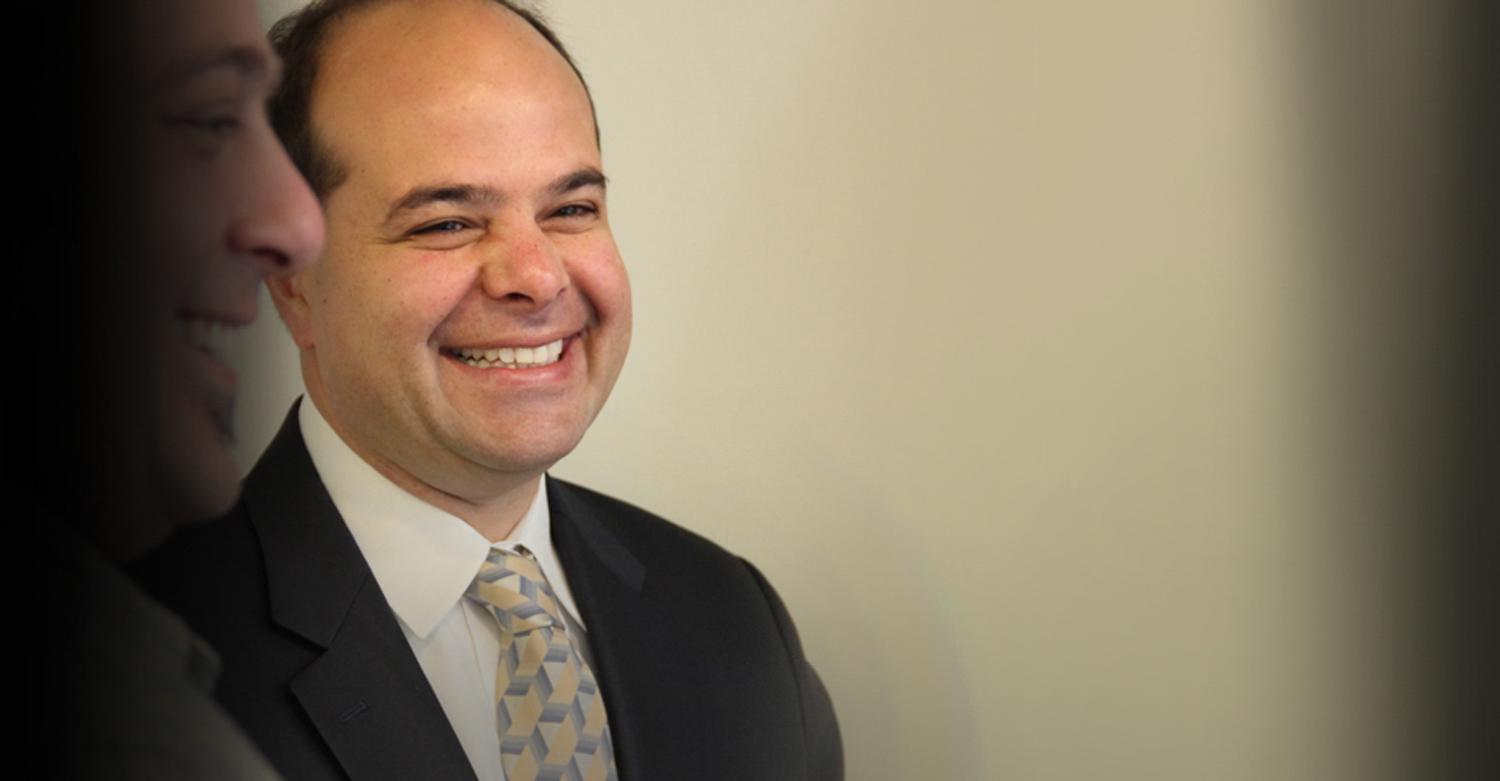Pitt’s LifeX project to support entrepreneurs


Pitt professor and LifeX overseer Dietrich Stephan hopes the initiative will attract a more robust life science industry to the Pittsburgh area. (Photo via University of Pittsburgh)
After moving on from his career as a pediatric endocrinologist to become a professor in Pitt’s Graduate School of Public Health, David Finegold never forgot about the patients he treated.
He was especially moved by his patients who had suffered from Type 1 diabetes mellitus, a disease that prevents people’s bodies from making insulin. His clinical experience inspired him to collaborate with new colleagues and develop a therapeutic drug to treat this disease.
For the drug to be approved by the Food and Drug Administration and brought to market, however, it had to first pass a series of FDA-created safety and efficacy studies. While the drug was able to make it past phase I of the FDA’s trials, Finegold and his colleagues were unable to secure funding to get it past phase II, which required them to carry out costly studies proving the drug was safe and effective.
“We sort of ran into what’s called the Valley of Death. We couldn’t get the money [for] phase II,” Finegold said. “This was pretty frustrating for us because this was like 25 years-plus of work.”
Then Finegold ran into his former student Dietrich Stephan, who came to Pitt to deliver a lecture in 2012. During their meeting, Finegold first considered starting a company to fund his potential treatment.
“I was there sort of whining to him how we couldn’t get past this barrier of not being able to put enough money together,” Finegold said. “[Stephan] looked at me and said, ‘Well, why don’t we start a company to do that?’ and there was a long silence because I don’t start companies, I’m an academic.”
After receiving permission from his colleagues who had also been involved in the drug’s development and entrepreneurial help from Stephan, Finegold co-founded a San Diego-based company called DiaVacs in 2013, which is now part of Pitt’s LifeX product development platform.
LifeX is a new initiative the University started in 2017 that will provide funding to early-stage health science research companies who want to turn their work into commercial products. LifeX is made up of four separate entities — LifeX Portfolio, LifeX Labs, LifeX Capital and LifeX Seed.
LifeX Labs, which will be housed in the Strip District and fully operational later in the spring, will be a place where life science-based companies can have access to lab equipment and business expertise. LifeX Seed is an investment fund targeted at $25 million which will invest in the companies within LifeX Portfolio.
LifeX will fund the 15 to 20 startup biotech companies from around the world which currently make up the LifeX Portfolio. LifeX Capital is a larger venture capital fund which will invest in biotech companies across the nation. The plan is to centralize the platform in Oakland in the next three to five years so students can have access to the projects associated with LifeX.
The target amount of funding for LifeX Capital will be decided over the next 18 months — it currently does not have a number associated with it, according to Rebecca Bagley, Pitt’s vice chancellor for economic partnerships. LifeX’s creation is supported by several investor groups including Thiel Capital and Mitsui Ventures. LifeX also partnered with companies such as Wilson Sonsini Goodrich & Rosati and the Pittsburgh Supercomputing Center that provide resources including intellectual property protection and high performance computing.
Stephan, who is now a Pitt professor and chair of the Department of Human Genetics at Pitt, oversees the initiative. Pitt’s Dean of Graduate School of Public Health, Don Burke, recruited him in 2013 with a mandate to establish the LifeX platform.
Stephan said traditional sources of revenue for the University — such as research funding from the federal government — had been decreasing when he was brought on board. This developed an economic need to export science to the marketplace.
“What this platform does is it takes the enormous amounts of life sciences work that we do here at the University, packages it up, turns it into product, and those products can be sold to help people who are suffering and dying,” Stephan said. “In exchange we can bring new sources of revenue back to the University to continue to fuel the research enterprise.”
Bagley was involved in developing the LifeX platform. Her office conducted a study which found Pittsburgh’s life sciences community needed to generate more regional startups and high growth companies to develop an industrial base.
“In our role as a University we have significant research that we do,” Bagley said. “A lot of our common purpose is to make sure that research gets into the market and helps patients.”
Finegold said DiaVacs’ involvement with LifeX, besides enabling him and his colleagues to raise money needed to begin FDA phase II trials, has given him a richer understanding of translating research into commercial applications.
“[This experience] made me have greater value to some of my colleagues who have not been through this,” Finegold said. “I find I’m able to give them my perspective and my experience and hopefully help them augment their own endeavours.”.
Stephan said LifeX is worth investing in because it provides a net positive for the University and the region, meaning it will put back more into society, the environment and the global economy than it will take out. By deploying several hundreds of millions of dollars to support companies in their early stages, LifeX can build a network of medical companies and attract even more investments in Pittsburgh’s life sciences industry, he said.
Bagley said LifeX might help students find more jobs in the biomedical field since the project has the potential to attract a more localized and robust life sciences industry.
“Our hope is that we’ll have a very robust program for being able to engage [students] — particularly in the lab level where they can understand how these companies are built … either through internship opportunities or through graduate level work,” Bagley said.
According to Stephan, students will be able involved in the biotech companies associated with LifeX through internship programs late this year. Classes centered on building biotech companies will also be offered in the Graduate School of Public Health.
“Students will be able to have practicums within these portfolio companies. Actually get their hands dirty on how you build a company,” Stephan said. “And that’s a rarefied skill set.”
Recent Posts
Marquan Pope: The ultimate shark
One of the most remarkable things about sharks is that an injury doesn’t deter them.…
Who Asked? // Do we really get a summer vacation?
This installment of Who Asked? by staff writer Brynn Murawski mourns the seemingly impossible perfect…
Notes From an Average Girl // Notes from my junior year
In this edition of Notes From an Average Girl, senior staff writer Madeline Milchman reflects…
Meaning at the Movies // The Power of the Movie Theater
In this edition of “Meaning at the Movies,” staff writer Lauren Deaton discusses her love…
EMBRACE sponsors Black Maternal Health Wellness week
Because Black women’s maternal health is not institutionally prioritized, Pitt’s EMBRACE sponsored a Black Maternal…
Local ‘Standing Wave’ coffee truck energizes the Pitt food scene
The small business coffee truck “Standing Wave” has become a beloved new coffee spot on…


